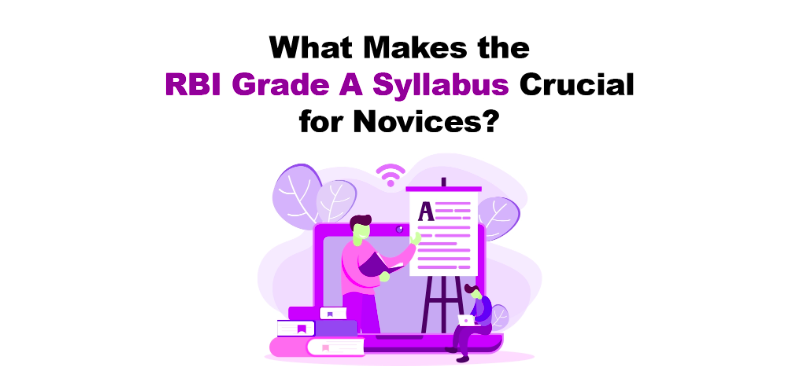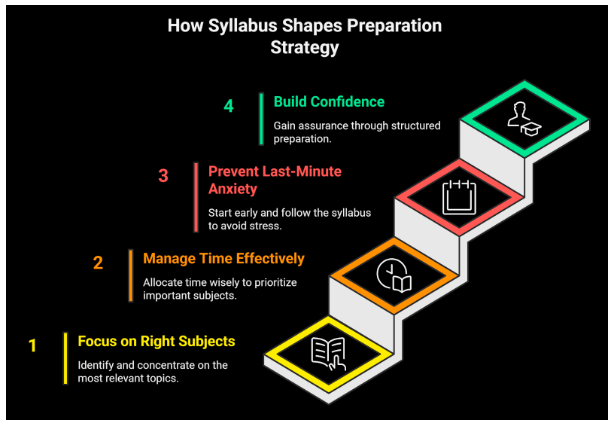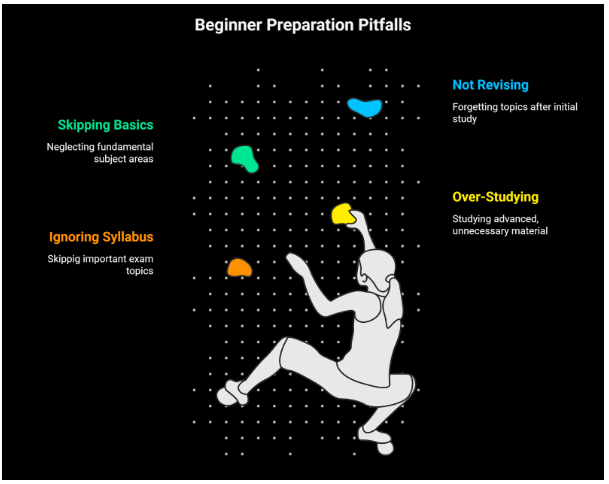What Makes the RBI Grade A Syllabus Crucial for Novices?
Start your RBI Grade A preparation with confidence. Focus on the syllabus, stay consistent, and cover the fundamentals. Success comes not from studying the most, but from studying the right things.
AC Team

There’s a buzz about the RBI Grade A exam. Nothing is official yet. But many believe the RBI may launch it soon.
If it comes, the syllabus will likely follow RBI Grade B. Just a bit lighter, a bit simpler.
For beginners, this matters a lot. The syllabus is what will tell you what to study and what to skip.
In this article, we’ll talk about why knowing the RBI Grade A syllabus is crucial for new aspirants. And how can it give you clarity from the first day if you are one?
Why the RBI Grade A Syllabus Matters for Beginners?
The RBI Grade A syllabus will keep your preparation on track. Beginners often fall into this trap. They open big books, watch random videos, and end up covering topics that may never be asked.
The RBI Grade A syllabus cuts all that noise. It tells you exactly where to put your energy. For a beginner, this is huge. You don’t waste months on irrelevant content. You stay focused.
It also calms your mind. The biggest fear for a new aspirant is: Where do I start? Once you have the syllabus, that fear is gone. You now have a clear first step, and that’s half the battle won in competitive exams.
How the RBI Grade A Syllabus Helps Build a Study Plan?
Without a clear RBI Grade A syllabus, you won’t know where to go.
For beginners, the RBI Grade A syllabus sets boundaries. It tells you what’s important and what you can safely skip.
Let’s say it has Quant, Reasoning, and English. You immediately know you need to practice daily quizzes, mock tests, and build speed.
If General Awareness is there, you know you must read the newspaper, follow monthly current affairs, and revise RBI-related updates.
And if Finance and Management are included, even in a lighter form, you can plan 7-8 hours a week to cover basics from RBI functions, monetary policy, and simple management concepts.
With this, your study plan gets balanced. No subject eats up all your time. Each has a slot, and you move step by step.
Why Novices Should Not Fear the RBI Grade A Syllabus?
The first look at any syllabus feels scary. Pages of topics. New words. Unfamiliar areas.
But you shouldn't worry about the RBI Grade A syllabus. Keep in mind that it should be lighter than Grade B. We won't be going into deep theory; we'll be focusing on the basics.
For Quant and Reasoning, the level is about the same as bank tests. This won't be new to you if you've studied for the IBPS or SBI exams.
English will test comprehension and clarity. Nothing beyond school-level grammar and practice.
General Awareness will matter, but mostly current affairs and the RBI’s role in the economy. You won’t be expected to write research papers.
Even Finance and Management, if included, will be entry-level. The basics of banking, monetary policy, and simple principles of management.
So instead of fearing the syllabus, see it as a guide.
Possible Overlaps with RBI Grade B Syllabus
Even though the RBI Grade A exam is still not officially announced, many believe its syllabus will borrow from Grade B. Why? Because both posts are in the same organization and need similar skills, but at different levels.
This is what might be the same:
- Quant, Reasoning, and English: Standard parts of banking tests.
- General Awareness: Current events, the economy, and the RBI's role are all common.
- Basics of Finance and Management: Grade A will probably only test the basics, while Grade B will go into more detail about theories and policies.
RBI Grade B students prepare for Economic and Social Issues (ESI) in depth. The main topics for Grade A may still be things like government schemes, inflation, and growth trends.
The difference will be in how deep you go, not in what you study. Consider RBI Grade A to be the basic level and Grade B to be the advanced level.
For beginners, this overlap is actually helpful. If you are preparing for the RBI Grade B, you’re already preparing for RBI Grade A that may come in the future.
How the Syllabus Shapes Preparation Strategy
For a beginner, the RBI Grade A syllabus isn’t just a list of subjects. It’s the roadmap. Without it, planning may seem disorganised.
The syllabus aids you in the following ways:
- Tells you what to study and what to skip: Novices waste time reading everything under the sun. When you have a detailed syllabus, it will ensure that you focus on the right subjects that need to be covered.
- Helps with Time Management: The RBI Grade A syllabus will help you save time because you will know which subjects need more of your time and what to prioritise. For example, reading newspapers or magazines regularly is necessary for general awareness, but the syllabus will tell you exactly what type of news to study from these materials.
- Prevents last-minute anxiety: If you start early, adhere to the syllabus correctly and move consistently in the right direction, you won't be in a hurry to cover the complete material when the exam is just days away.
In short, the syllabus shapes your daily routine, study plan, and confidence. Without it, preparation is like driving without a map.

Common Mistakes Beginners Make
- Ignoring the syllabus: Many jump straight into mock tests or coaching notes without reading what’s actually asked.
- Over-studying: Beginners sometimes read advanced material meant for Grade B. This wastes energy.
- Skipping basics: Some focus only on current affairs and forget math, reasoning, and English.
- Not revising: Reading once is not enough. Syllabus topics need repeated revision.
Avoiding these mistakes can save months of frustration.

What If the RBI Grade A Syllabus Changes?
This is a fair doubt. Since RBI hasn’t given the RBI Grade A syllabus yet, what if it’s different? The answer is simple: it won’t be drastically new. RBI follows a pattern. Even if there are small changes, the core subjects such as aptitude, English, reasoning, economy, and finance will remain.
So, preparing on these lines won’t go to waste. At worst, you’ll have to adjust slightly once the official RBI Grade A notification comes.
Final Thoughts
Don't overthink if you're just starting out. Remain consistent, cover the essentials, and stick to the fundamentals. You can adjust after the notification is sent.
Keep in mind that exams don’t reward those who study the most, but those who study the right things. The RBI Grade A syllabus stands important because of this. And that’s why, as a beginner, it’s your best friend on this journey.

-176839915705147.png)

-1768377350746721.png)